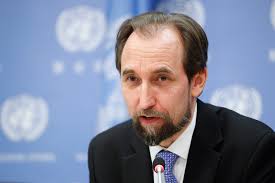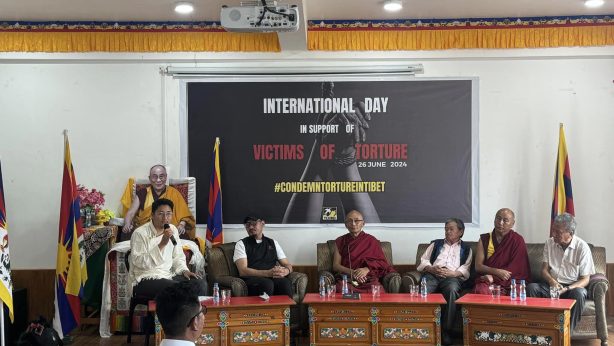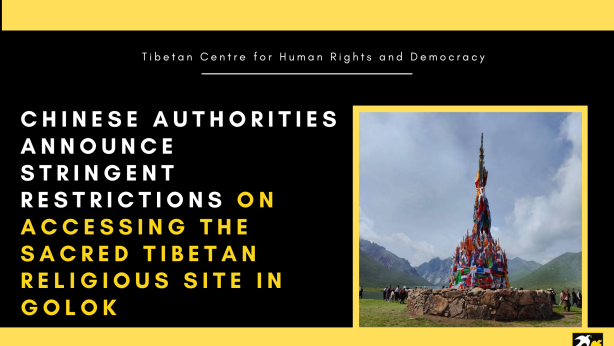TCHRD calls on new UN rights commissioner to make Tibet a priority

The Tibetan Centre for Human Rights and Democracy (TCHRD) would like to welcome Zeid Ra’ad Al Hussein to the position of the United Nations High Commissioner for Human Rights, which he assumed on Monday, 1 September.
High Commissioner Al Hussein comes to office when expectations for what the Office of the High Commissioner for Human Rights (OHCHR) can do are high and the threat to human rights is growing. As High Commissioner Al Hussein’s predecessor, Ms. Navi Pillay, is the most powerful single voice advocating for human rights in the world and she was willing to confront politically powerful States, including China, over their human rights policies.
Al Hussein is already familiar with international diplomacy and the importance and universality of protecting individual rights. Before becoming the High Commissioner for Human Rights, Al Hussein was Jordan’s Ambassador to the United Nations and played a central role in drafting the Rome Statute, which created the International Criminal Court. TCHRD urges Al Hussein to build upon his experience to ensure the OHCHR remains an effective advocate for human rights and that he use his position to advocate for human rights in Tibet and elsewhere, despite the political pressure and claims of “Asian Values” that attempt to hide human rights problems.
As High Commissioner Al Hussein comes to office there are numerous human rights catastrophes throughout the world. These catastrophes have affected millions of people and range from war crimes and possible ethnic cleansing in the Central African Republic that has forced a quarter of the population to flee their homes, to widespread human rights abuse in Iraq, Syria, and eastern Ukraine. It would be easy to allow these catastrophes to overshadow the other human rights problems throughout the world. The OHCHR must not be distracted from addressing these less pressing but equally important human rights situations.
The current human rights catastrophes demonstrate that the OHCHR is most effective when it focuses on prevention. It is both easier and more effective to talk parties away from the ledge of human rights catastrophe than to pull them back after they have jumped. Accordingly, High Commissioner Al Hussein must make addressing the situation in Tibet a priority.
By the definition of crimes against humanity that Al Hussein helped draft as part of his work on the Rome Statute, Chinese officials are responsible for crimes against humanity in Tibet. The situation in Tibet is not improving. In August, TCHRD learned of the emaciated condition of Trulku Phurbu Tsering Rinpoche and the shooting of unarmed non-violent Tibetan protesters. While the human rights situation in Tibet does not yet rise to the level of the Central African Republic, Iraq, Syria or the Ukraine, it merits the urgent attention of High Commissioner Al Hussein both because of the deplorable treatment of Tibetans and because it could escalate into a human rights catastrophe. If the situation in Tibet is allowed to deteriorate into a human rights catastrophe on comparable to those else where, it will already be too late for the Tibetans.
Therefore, TCHRD not only welcomes Zeid Ra’ad Al Hussein to the post of UNHCHR but also urges him to build upon the success of his predecessor and use his position as the most powerful and respected single voice for human rights to prioritize and address the festering situation in Tibet.


